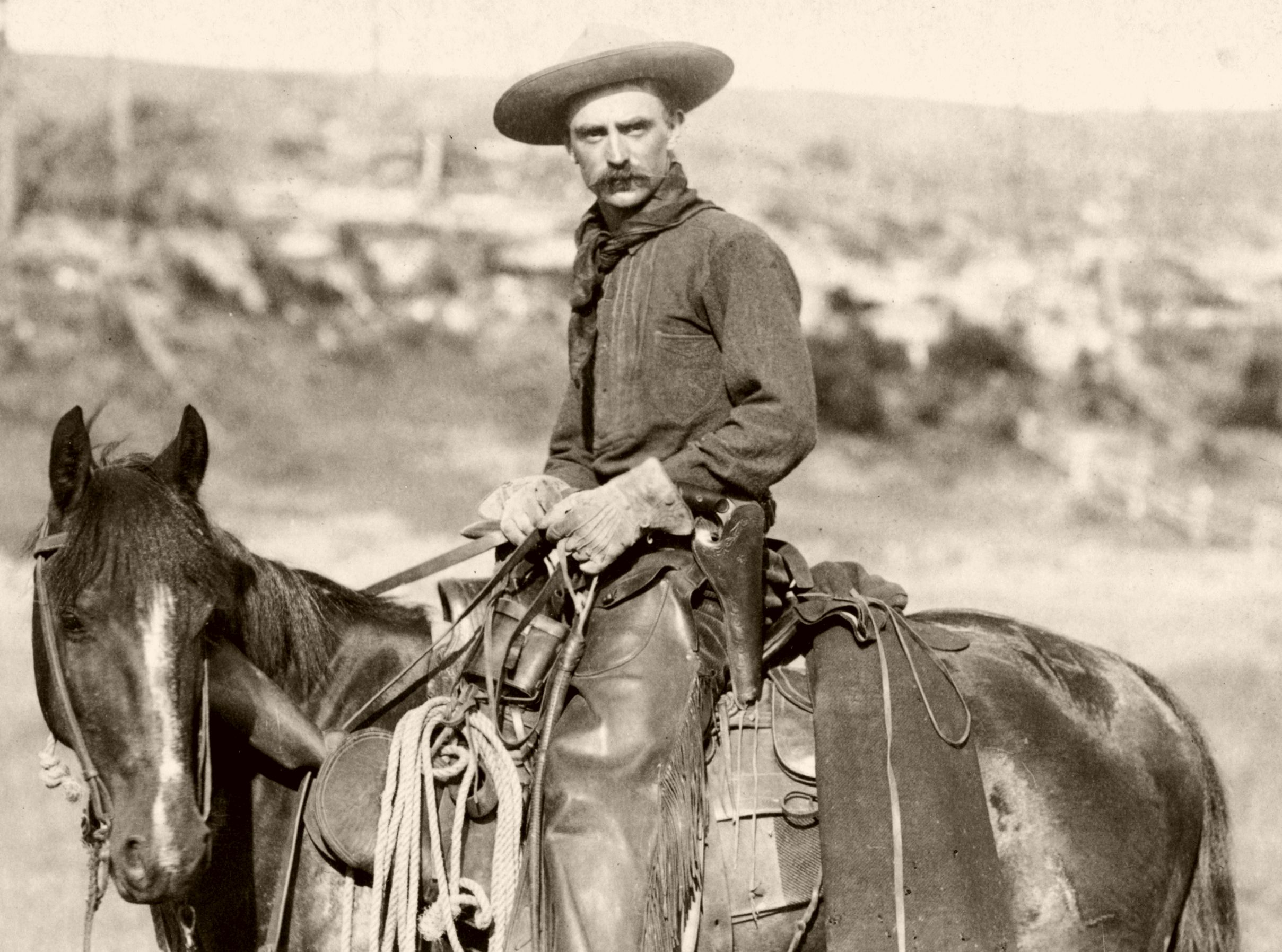ERA 3: Revolution and the New Nation (1754–1820s)
How The Frontier Shaped The American Character, by Ray Allen Billington
Guiding Questions
What is an American?
How did the frontier help create American identity?
How was democracy enhanced with The Westward Movement?
How have historians supported or refuted Frederick Jackson Turner’s thesis?

The American Cowboy
Teacher-to-Teacher
Students could use the Billington article as an introduction to studying the New Nation, The West or as a part of a culminating activity either for a unit on The West or the year of study. There are connections to Winthrop’s “city upon a hill” as well as Hoover’s “rugged individualism”. The article may need to be excerpted because of its length or it could be divided up among the students in a jigsaw approach. Students could identify the characteristics and research for examples, in history, that either support or refute Turner’s thesis. The concept of American exceptionalism doesn’t start with Turner, nor does it end there, and the relevance of the thesis today could be a great topic of discussion or structured debate.
- How The Frontier Shaped The American Character (April 1958 | Volume: 9, Issue: 3) articles_ah
- Letters from an American Farmer, J. Hector St. John De Crevecoeur historical_documents
- Alexis De Tocqueville, Democracy in America historical_documents
- John O'Sullivan, Manifest Destiny historical_documents
- A Gold Hunter's Experience, Chalkley J. Hambleton historical_documents
- American Progress by John Gast historical_documents
- "Little Sheaves" Gathered While Gleaning After Reapers. Being Letters of Travel Commencing in 1870, and Ending in 1873 historical_documents
- Benjamin Singleton- Recruitment of Black Homesteaders, 1878 historical_images
- Homestead Act Commemorative Stamp historical_documents

